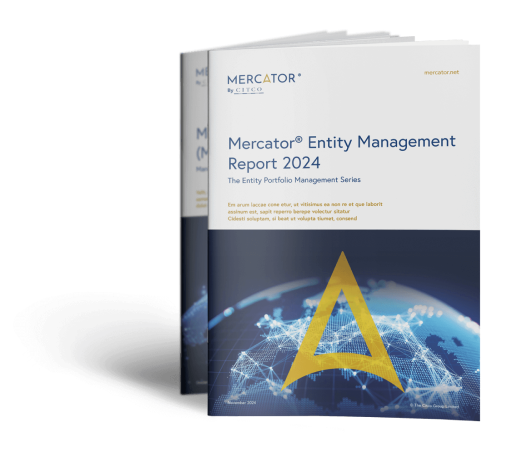The information contained in this document is marketing material and for informational purposes only. The information contained in this document is presented without any warranty or representation as to its accuracy or completeness and all implied representations or warranties of any kind are hereby disclaimed. Recipients of this document, whether clients or otherwise, should not act or refrain from acting on the basis of any information included in this document without seeking appropriate professional advice. The provision of the information contained in this document does not establish any express or implied duty or obligation between Citco and any recipient and neither Citco nor any of its shareholders, members, directors, principals or personnel shall be responsible or liable for results arising from the use or reliance of the information contained in this document including, without limitation, any loss (whether direct, indirect, in contract, tort or otherwise) arising from any decision made or action taken by any party in reliance upon the information contained in this document. © The Citco Group Limited, December 2024.
Entity Management in China – 3 things to be aware of
China remains a key location for many multinationals to base entities. However, despite its popularity, it is one of the most complex and costly jurisdictions for multinationals to navigate when it comes to entity management. Indeed, data from the Mercator® Entity Management Report 2022 saw China rank the second the most expensive and 12th slowest jurisdiction to complete corporate secretarial tasks.
Here we take a closer look at the areas multinationals need to be aware of when doing business in China:
1. Navigating a de-centralized governance system
China operates via a de-centralized governance model with more than one authority for corporate governance. This means that for just one corporate change, companies will need to make several filings to different government institutions. This can include filings with the local Administration for Industry and Commerce (AIC), filings with the Tax Bureau, updating the Customs Registration Certificate, Foreign Trade Business Operation Filing Record, Self-Inspection Declaration Record and notifying local banks.
Filing for one change can also trigger another necessary change – for example an address change will also require a business licence change – and the varying discretionary powers of different authority officers often leads to additional documents or information requests.
2. Appreciating local nuances
China has 31 provincial-level administrative regions and more than 600 cities. Whilst the same legal system applies throughout China, in practice the processes between cities and provinces vary greatly.
Some authorities accept online filings (for example Shanghai AIC) but others in more rural cities still require documents to be filed in person and pre-approval forms are often required. Supporting documentation can range from original licenses, leases, floor maps and full height pictures.
There are also strict rules on the presentation and format of the documentation itself. A company seal always has to be affixed, only black ink pen to be used, single page printing on A4 size paper, signature must match the signature in the passport and all documents must be submitted in principal language of commerce – Chinese.
3. Keeping up to date with the evolving regulatory environment
In recent years, the Chinese government has made steps to improve the speed and efficiency of entity management to further encourage international investment. For example, annual filings has been simplified by combining the Annual Joint Report and the Administration for Industry Annual Report into one.
Most recently, the Shanghai AIC has been working towards utilising technology to realize online/remote filings, including the testing of e-signatures for legal representatives/directors. In September 2022, a unique ‘Entity Code’ was introduced and printed on the business licence for all types of entities. The code can be used for AIC filing purposes and by scanning it anyone can access and view the basic information of the entity including its approved business scope, past AIC checking record and administrative punishment record.
Jennifer Zhao
Senior Legal Officer, Mercator by Citco, Citco Enterprise Management Consulting (Shanghai) Co. Limited

